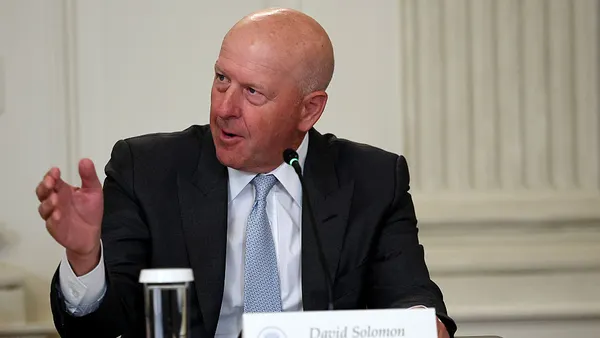Dive Brief:
- The Federal Reserve intends to halt all examination activities for banks with less than $100 billion of assets, except when an institution has been flagged for consumer protection or financial stability issues, the central bank said in a statement Tuesday.
- Big banks are still expected to submit their capital plans for the Fed’s Comprehensive Capital Analysis and Review stress tests by April 6, but the regulator is giving banks an extra 90 days to resolve existing supervisory findings, unless they’re critical.
- The Fed said it is instead shifting its focus toward "monitoring and outreach to help financial institutions of all sizes understand the challenges and risks" they face during the coronavirus pandemic. The central bank said it would "reassess its approach to examinations in the last week of April to determine whether conditions have changed."
Dive Insight:
Big banks' annual stress tests are meant to gauge how well financial institutions can handle a hypothetical recession replete with stock-market volatility, high unemployment and increasing loan defaults.
The worst-case scenario on this year’s stress test — dubbed "severely adverse" — sees the U.S. gross domestic product (GDP) dropping 9.9%, unemployment hitting 6.1% and the Dow Jones Industrial Average falling to 18,623 by the end of June, according to The Wall Street Journal. For reference, the Dow closed at 18,591.93 on Monday, CNBC reported — a drop of nearly 11,000 points from Feb. 12. Meanwhile, Morgan Stanley economists Sunday predicted a 30.1% drop in the U.S. GDP in the quarter between April and June. And Treasury Secretary Steven Mnuchin said unemployment could hit 20%, barring government intervention.
"The severely adverse scenario looks pretty rosy right now," Pete Gilchrist, executive vice president at the bank services company Novantas, told the Journal.
This year’s capital plans will "be used to monitor how firms are managing their capital in the current environment, planning for contingencies, and positioning themselves to continue lending to creditworthy households and businesses," the Fed said.
But some in the banking space said the tests will be irrelevant this year, as banks have already run their scenarios and it’s too late to control for the impact the coronavirus outbreak has already had.
"It’s a waste of time for both the banks and regulators," Kamal Mustafa, chairman of Invictus Group, told the Journal. "It risks a misdirection … telling the banks that you have enough capital when no one knows."












